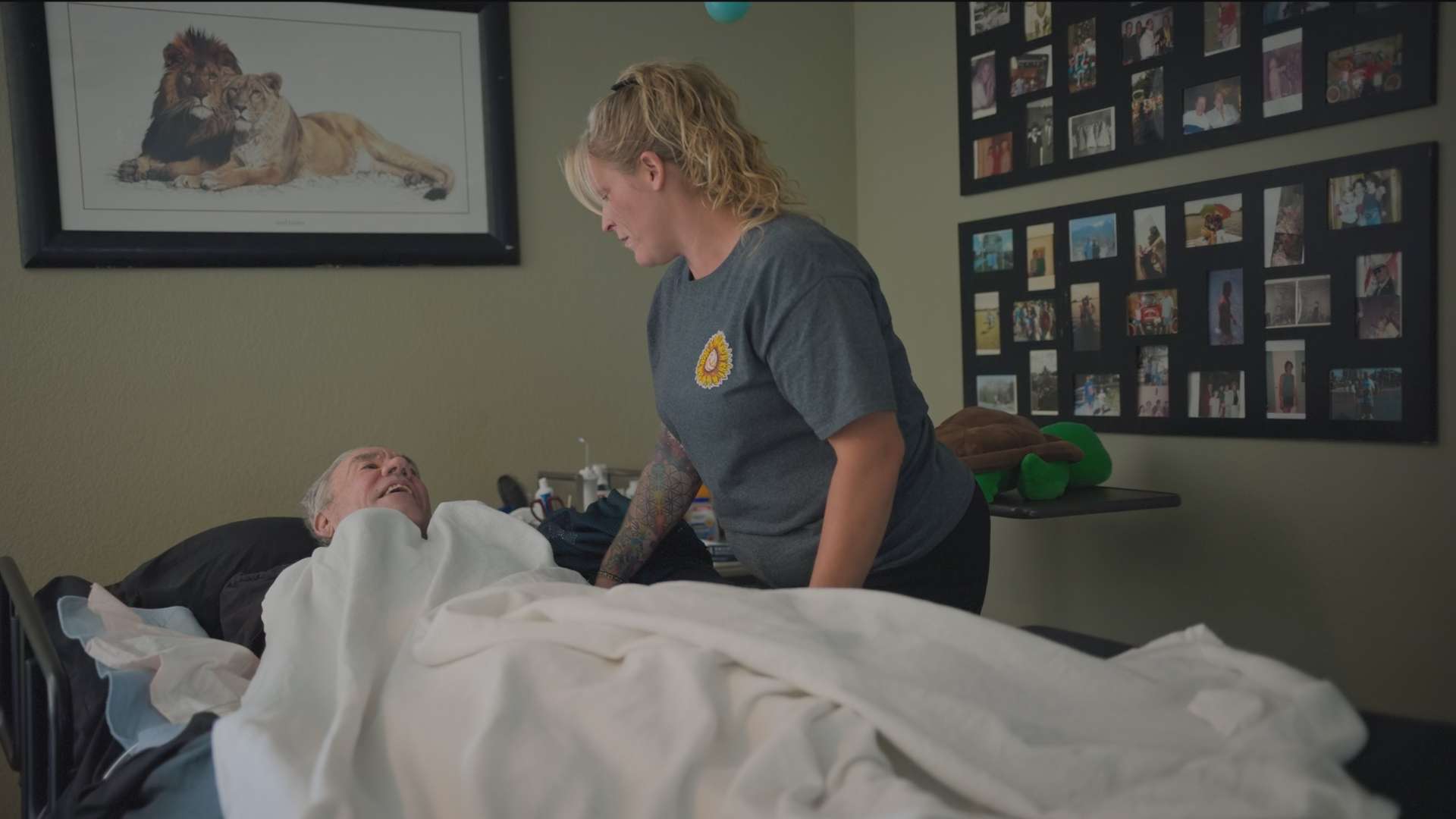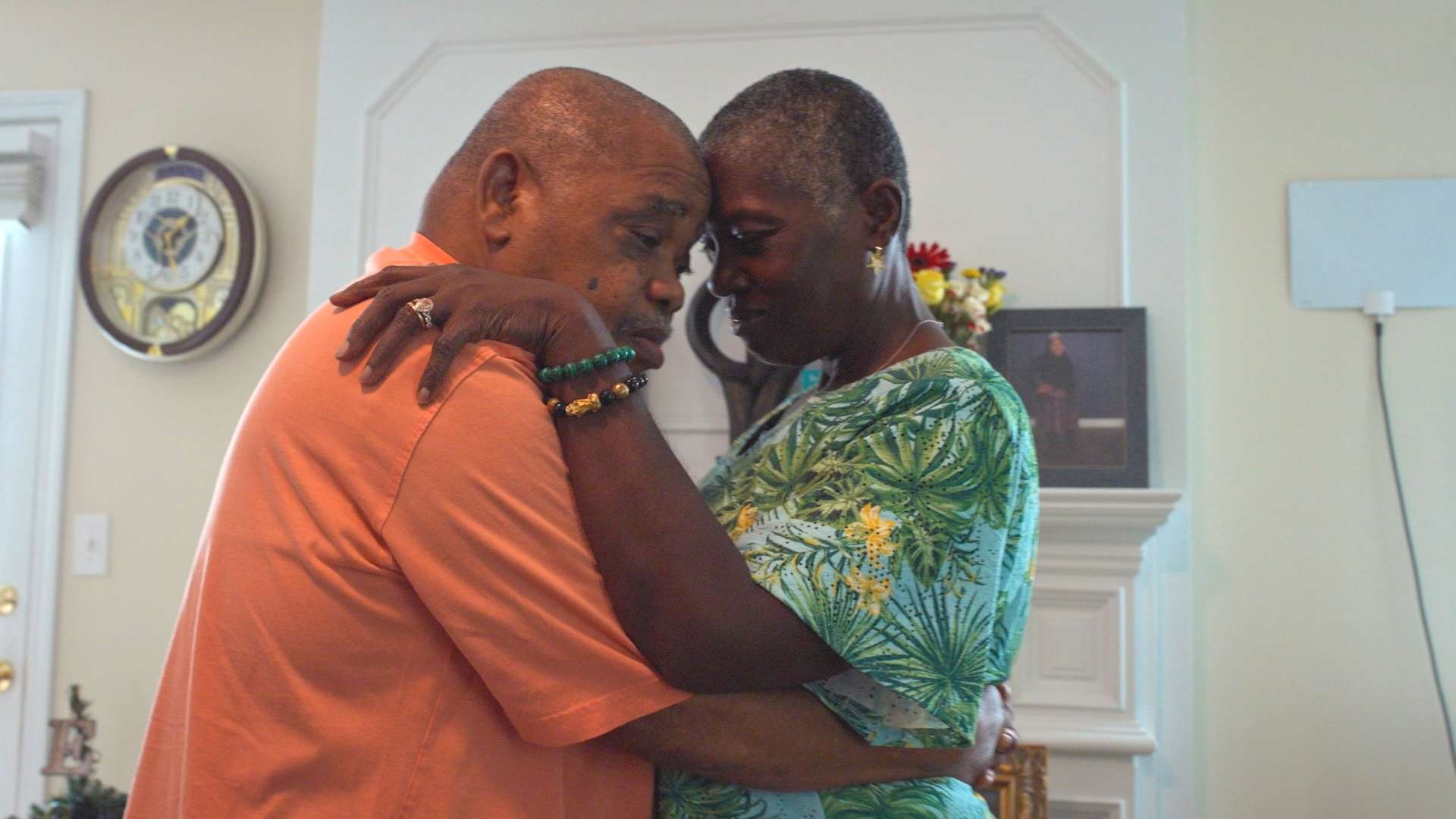Bradley Cooper’s Caregiving: A Beautiful, Heartbreaking Look at America’s Invisible Workforce

The story of caregiving in America is everyone’s story. That’s how one expert sums up Caregiving, the powerful new documentary that premiered on PBS in June. Produced by actor Bradley Cooper following his own experience caring for his father as he battled lung cancer, the documentary shines a spotlight on work that is universal and too often invisible.
The story of caregiving in America is everyone’s story. That’s how one expert sums up Caregiving, the powerful new documentary that premiered on PBS in June. Produced by actor Bradley Cooper following his own experience caring for his father as he battled lung cancer, the documentary shines a spotlight on work that is universal and too often invisible.
Caregiving illustrates the beauty and heartbreak of the experience by following six families as they care for loved ones. Their stories are woven together with expert insights and a historical timeline showing how caregiving in America has evolved from both a social and political perspective.
A simmering crisis
The documentary begins with an assessment of the current state of caregiving in America today as millions of paid care workers and family caregivers face overwhelming challenges and burnout. Ai-jen Poo, Executive Director of Caring Across Generations, calls it a simmering crisis.
“Because of advances in health care and technology, people are living longer than ever before… and we’ve got none of the systems or policies in place to support a quality of life for that extended period. On the other end of the generational spectrum, we’ve got millennials giving birth. And so, across the generational spectrum, we need more care than we ever could have imagined or that we’ve ever designed for.”

Among the families who share their stories is Malcoma Brown‑Ekeogu, who left her job to care for her husband, who has an incurable neurological disease. We watch as she prepares to shave him, rubs lotion into his feet, and dances with him in their living room while reflecting on the emotional, physical, and financial toll of full-time caregiving.
Other caregivers featured come from different parts of the country and face a range of challenges: a daughter caring for her father with Alzheimer’s, a paid caregiver balancing her patient’s needs with raising her own children, and a couple caring for their daughter with cerebral palsy. While each story is unique, they share common threads: emotional exhaustion, financial strain, and a deep sense of love and responsibility.
Reimagining Caregiving
Alongside these intimate, present-day stories, Caregiving weaves in historical and policy context – reminding viewers that the caregiving crisis didn’t emerge overnight.
Archival footage takes us back to the first time the United States confronted the challenge of caregiving as a country during the Great Depression. It explores shifting attitudes toward the social safety net and the impact on the workforce, from World War II to the Vietnam era and into the individualism of the ‘80s and ‘90s. It touches on the 2009 recession, the Covid-19 pandemic and President Biden’s Build Back Better bill, which originally included major changes to paid family leave and childcare, which were stripped from the bill.
Throughout the documentary, experts offer their takes on how we got here, and what comes next for one of the most consequential issues we face today. Paul Irving, Senior Advisor for the Milken Institute suggests we need to reimagine caregiving as a universal condition that will affect us all.
“How do we measure the success of America? Is it just GDP? If we are a caring society, caring for our children, caring for our older adults, we end up with a country that’s happier, where more people have the ability to work and work well. In the next version of American, could care be a driver of our success?”
Whether success is measured in GDP or happiness, care work is essential to the functioning of the American economy. It shapes our workforce and our shared future. Caregiving leaves viewers with a powerful realization: until we value caregivers, none of us will be truly prepared for what lies ahead. Watch Caregiving on the PBS website or the PBS app.
For older adults and adults with disabilities, AgeSpan offers a range of services to support present or future care needs. To learn more, visit our Care Options & Services, or Family Caregiver Support Program pages on our website.
Recent Posts
Categories
- Aging Unbound
- Annual Golf Classic
- Ask Joan – Weekly Q and A Column
- Caregiver Events and Workshops
- Caregivers Connect
- Caring for Someone with Alzheimer’s or Dementia
- Changing Aging
- Community
- COVID19
- Digital Access
- For Families and Caregivers
- General
- General Ideas and Support
- Geriatric Support Services
- Grandparents / Kinship Caregivers as Parents
- Health Worker
- Healthy Aging
- Inspiring Aging
- LGBTQ+
- Long Distance Caregiving
- Making Connections
- Medicare Resources
- New to Caregiving
- Nutrition
- PCA
- Program Update
- Resources
- Scam Alert
- Self Care for the Caregiver
- Uncategorized
- Veterans
- Volunteering
- What’s New Out There
- Years of Service
Tags
Affordable housing agespan Alzheimer's awareness caregiver Caregiver Care caregivers Caregiver Support clutter Cognitive community Connection Dementia diabetes education General Caregiving golf golf classic Grandparents health healthy aging hiring Hoarding housing learning Long Distance Medicare meditation memory cafe Memory Loss mental health Music and Memory Nutrition older adults older americans month personal care report elder abuse Resources Self Care SHINE taichi tournament volunteer wellness Yoga
